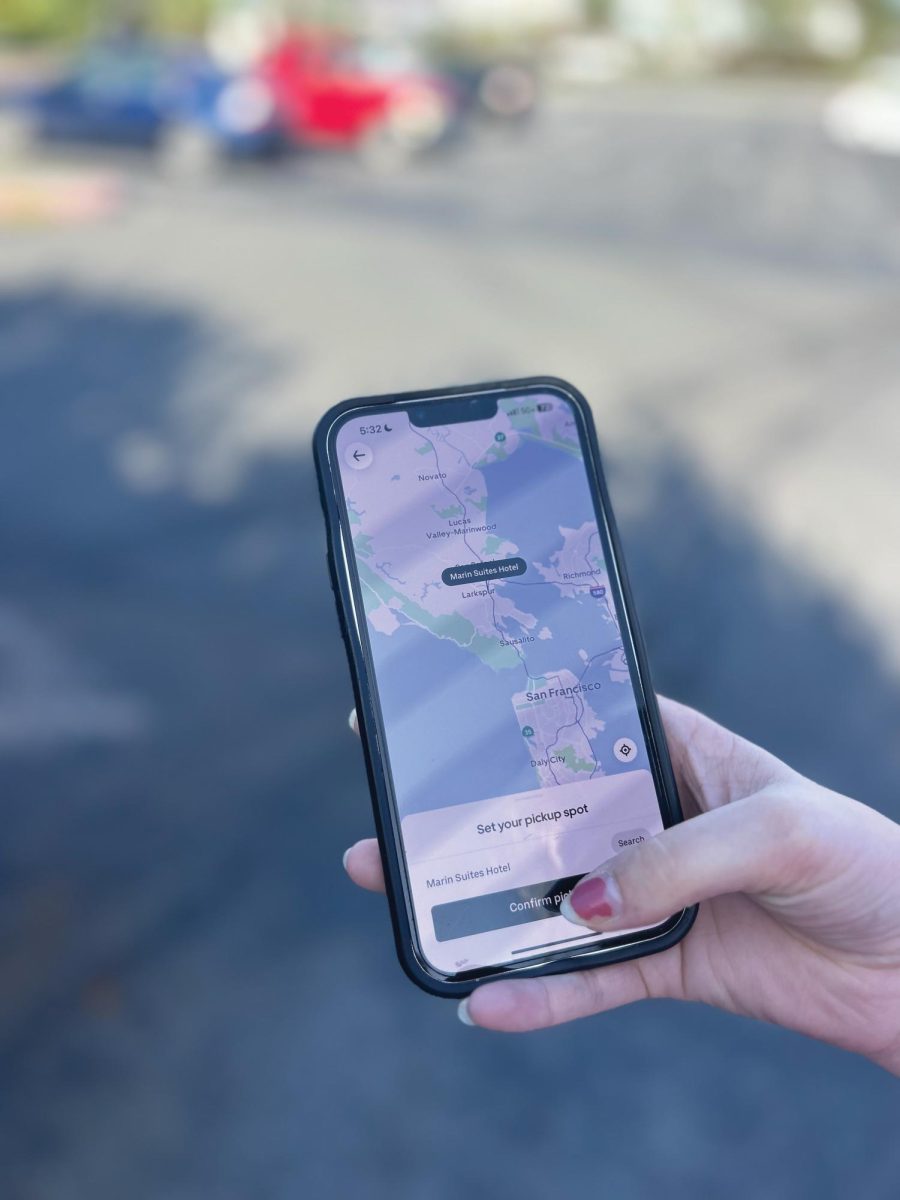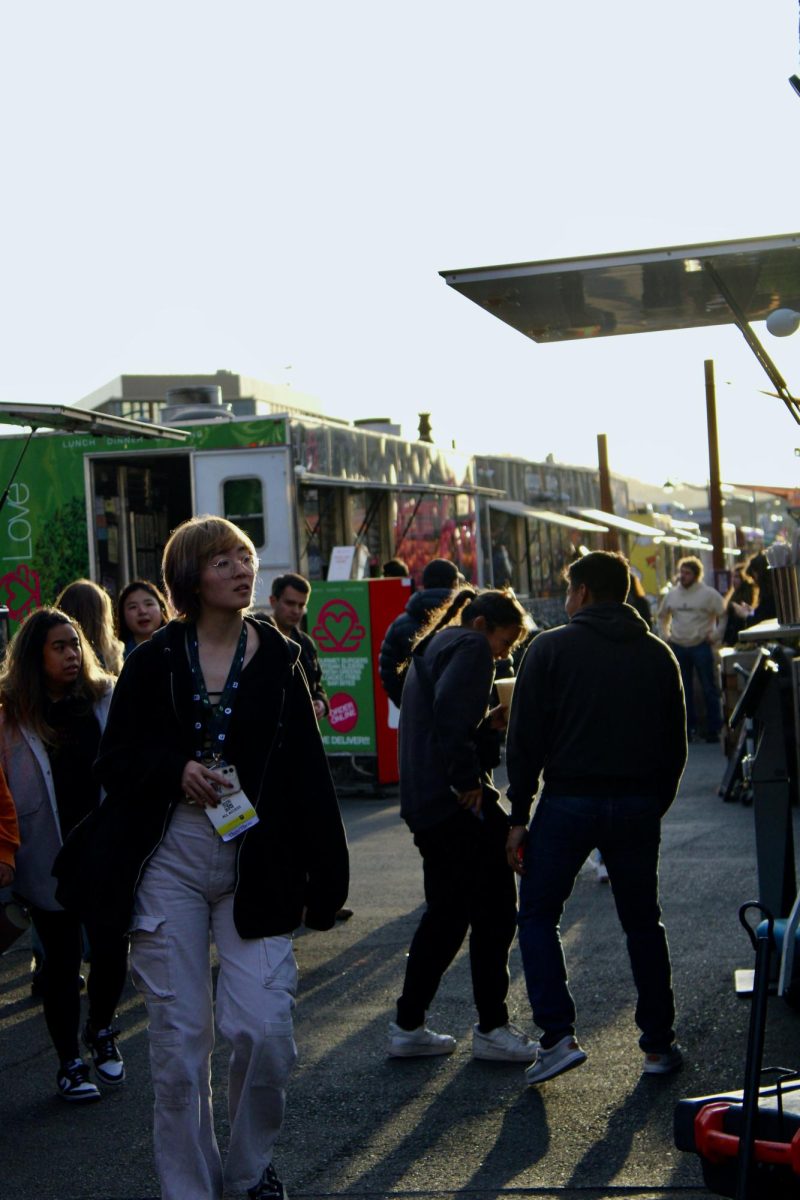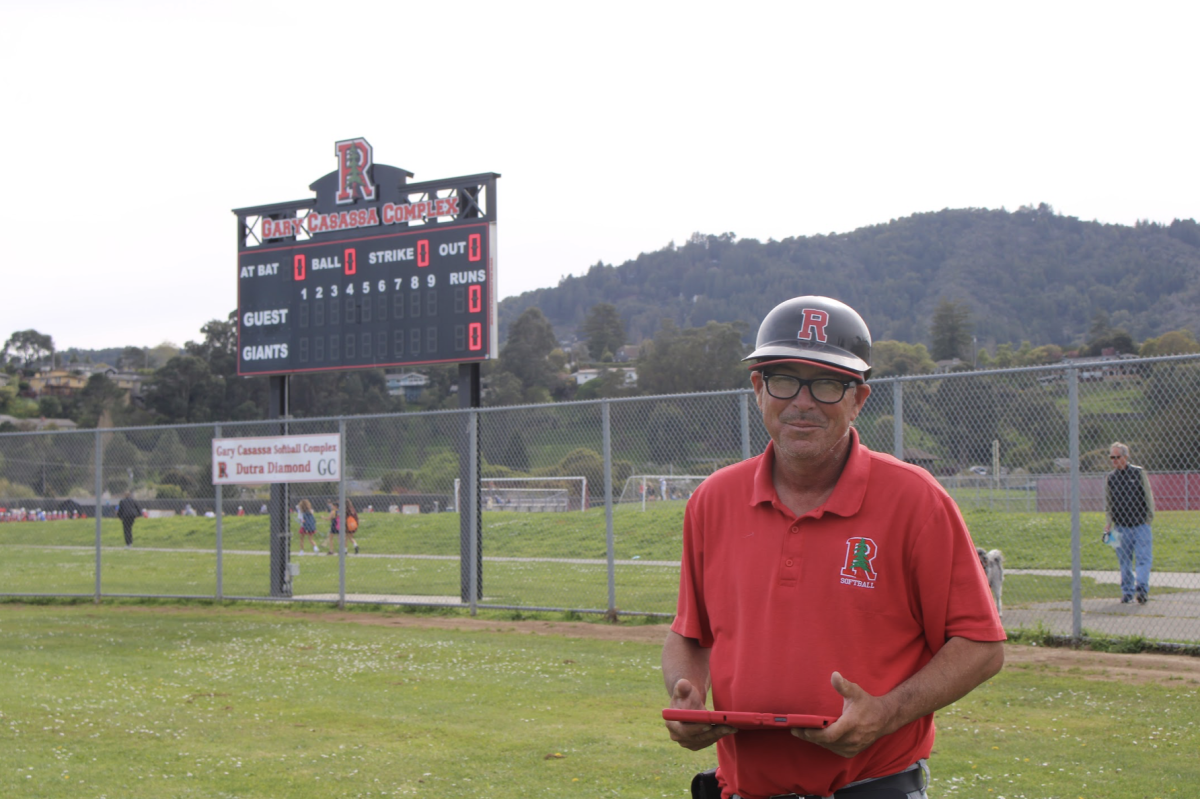Imagine a new school. A new town. A new country. Everything is different, from the public transportation to the way the date is written.
English Language Development (ELD) is an English class designed for newcomers to the language. Eleven ELD students are currently enrolled at Redwood, each from a different country, and they speak a variety of languages: Portuguese, Japanese, Spanish, Danish, Russian, Chinese, French, and Creole. The only language they all have in common is English.
The class is run much like any other language class. Deborah McCrea, who teaches the class, often focuses on American culture, explaining customs like rallies or St. Patrick’s Day, and teaches vocabulary and traditions with which her lesson is associated. Other times, she shows a short video and has the class do short writes.

“I check in for them and I’m sort of an advocate, or I help them understand their assignments,” McCrea said. “It’s very difficult for English learners to understand the big picture. They don’t have a lot of the background or cultural knowledge to know what the teacher is really asking for.”
Despite barely speaking English, these students are enrolled in all mainstream classes except for ELD.
“I think a lot of them feel isolated, especially the ones who haven’t connected to other students who share their language. It’s hard,” McCrea said.
Junior Xenia Rodriguez, McCrea’s peer tutor for the ELD class, helps students with their homework and answers questions. Rodriguez came to the United States in fifth grade from El Salvador and now acts as a teacher’s assistant, helping students who are now in that same position.
“We bond over the fact that we’re immigrants because I was one, and I was in that same position. We bond over the struggle of getting into a new place,” Rodriguez said.

Rodriguez has created an ELD club, called International Talking, with the help of McCrea. The first meeting took place on Monday, March 30 and drew in a wide range of participants, including English learners, students from McCrea’s Spanish classes, and bilingual speakers.
“Ms. McCrea and I joined together to make this club where we try to find people who speak different languages to try to help them in a more social manner. [It would also be] for the English speakers to practice the other language they’re good at and for the English learners to practice English with somebody who is fluent in English,” Rodriguez said.
In class, McCrea and Rodriguez focus a lot on conversation skills with the students.
“Everyday we make sure the students are talking because in a lot of classes they don’t talk––they don’t say anything because their default is to be really quiet. I want to make sure they’re communicating, and involved, and their opinions are heard,” McCrea said.
The ELD students identified social integration as one of their biggest challenges upon arrival in the United States.
“When I came here, I couldn’t understand anyone. After six months, I got used to it and now I’m almost fluent and I can listen to everyone. The biggest issue was just understanding people when they talked,” said Lucas Barbeiro, a senior who came to Redwood last year from Brazil. “It was hard to make friends. Americans are really closed, they’re not very open, so that was very hard.”
Rodriguez recalled how she struggled to fit in as she transitioned from El Salvador to the United States.

“It [was] horrible. Awful. My experience wasn’t very welcoming and it’s really difficult because it’s not only learning a new language, it’s also just learning new social differences,” Rodriguez said. “It’s also hard to socialize. People aren’t very understanding of that.”
Manami Shiomi, a junior and ELD student from Japan, said coming to Redwood made her a more open person.
“Before I came here, I was not really interested in anything that much, but after I came here I’m interested in everything and I’m more open minded than before,” Shiomi said.
Ulrikke Rovsing, a student in the ELD class who immigrated from Denmark, said that adjusting to California culture was a challenge.
“There will always be parts of me that will not be comfortable here because I grew up with something so different. I would say it took me about a year to feel that I was home, that this was my home now,” Rovsing said.
McCrea encourages students to reach out to English learners and accept them into our community with kindness and patience.
“We don’t have a lot of diversity [at Redwood], and so this is an opportunity for the students to hear about other perspectives to learn what other people from other parts of the world have to think and have to offer,” McCrea said. “We need to have a culture of welcoming and acceptance and even celebrating differences.”
According to McCrea, it takes five to seven years to understand another language at an academic level, which is a big step past fluency.
“They frankly don’t have enough time in high school to get to that level, so it’s a real challenge,” McCrea said. “It takes a lot of time and a lot of exposure to a lot of really high level academic material that sometimes they don’t get or they don’t engage with to the degree that they need in order to reach that level.”
What students already know in a different language is transferrable into English, according to McCrea. They already know how to study and learn, whether their skills are in writing, math, or other subjects and there are even concepts that they’ve already learned in their native language.
“I have a Brazilian student who is a really good writer because he writes really well in Portuguese and he loves to write,” McCrea said. “He only came here last year, but he can already write five-page essays because he knows how to do that in Portuguese. It’s very transferrable.”
ELD feels like a community, according to McCrea, because all of the students help each other as they figure out their places at Redwood.
Barbeiro and Shiomi both said that ELD has helped them both improve their English. Barbeiro said that if he hadn’t taken ELD when he came to Redwood, his English wouldn’t be at the level that it is at right now.
Rovsing stated that ELD helped her, especially when she first came to Redwood, because it gave her a place where she could just be herself.
“It’s a place where we all have something in common, where it’s okay not to have straight A’s,” Rovsing said. “We all get that it’s hard. We all have our own issues. We know what it’s like to go through this alone, and we just make sure that we’re all really comfortable and supportive.”

















